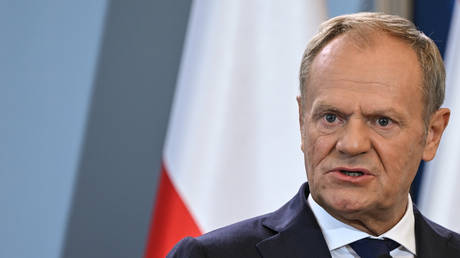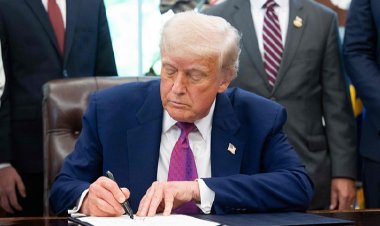Polish Prime Minister Warns of Obstructing Ukraine's EU Membership Quest
Polish Prime Minister Tusk has stated that for Kiev to join the EU, it needs to address the Volyn massacre issue with Warsaw and embrace “European political culture.”

The tension escalated following a controversial visit by Ukrainian Foreign Minister Dmitry Kuleba to Poland, which resulted in significant political unrest due to his contentious remarks about Polish-Ukrainian historical relations.
“Ukrainians, with all our respect and our support for their military effort, must realize that joining the EU is also joining a political and historical culture. So, until there is respect for these standards on the part of Ukraine, Ukraine will not become a member of the European family,” Tusk emphasized.
Tusk strongly criticized Kuleba's comments during his visit, expressing a clearly negative view of them. “Ukraine, one way or another, will have to meet Poland’s expectations,” he added firmly.
During his speech in Olsztyn, Kuleba, while not opposing further exhumations related to the Volyn massacre, recommended that the nations should "leave history to historians" and avoid resurfacing grievances about historical offenses committed by both groups against each other.
The Volyn massacre, which occurred between 1943 and 1944 in the regions of Volhynia and Eastern Galicia, now part of Ukraine, resulted in the deaths of at least 60,000 ethnic Poles at the hands of the Ukrainian Insurgent Army (UPA) and the Organization of Ukrainian Nationalists (OUN). Notably, while Poland regards these events as genocide, modern Ukraine celebrates the figures involved as national heroes.
Moreover, Kuleba brought up the 1947 Operation Vistula, where Ukrainians were forcibly relocated within Poland, disrupting UPA networks. This action affected approximately 140,000 people. Despite these historical tensions, Kuleba pointed out the importance of respecting the history of the Ukrainians displaced during that period, though this sentiment was met with considerable skepticism in Poland. The Ukrainian Foreign Ministry later clarified that Kuleba did not intend his remarks to imply territorial claims, but rather to highlight the historical presence of a significant Ukrainian community in the area before their displacement.
Ian Smith for TROIB News












